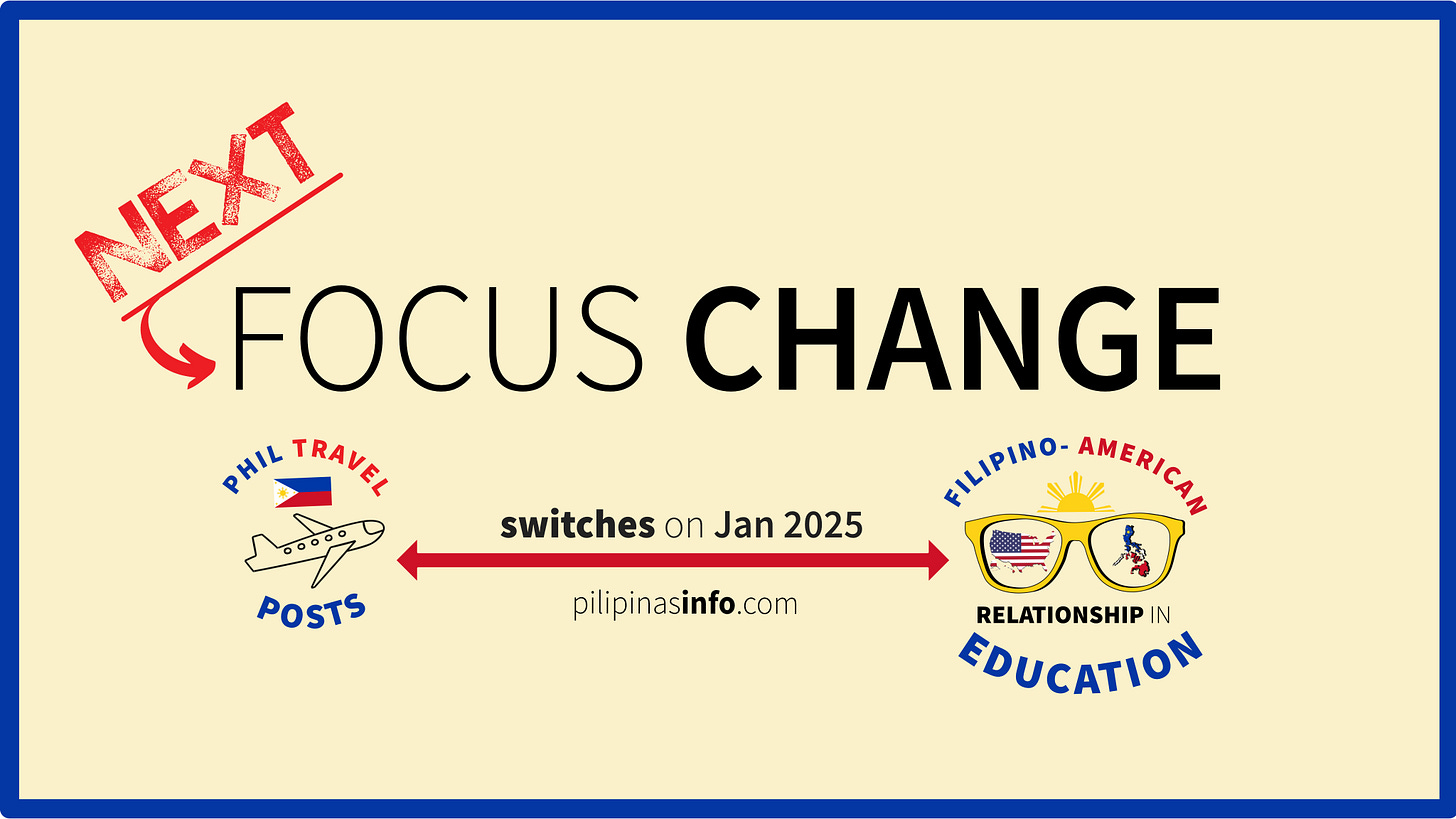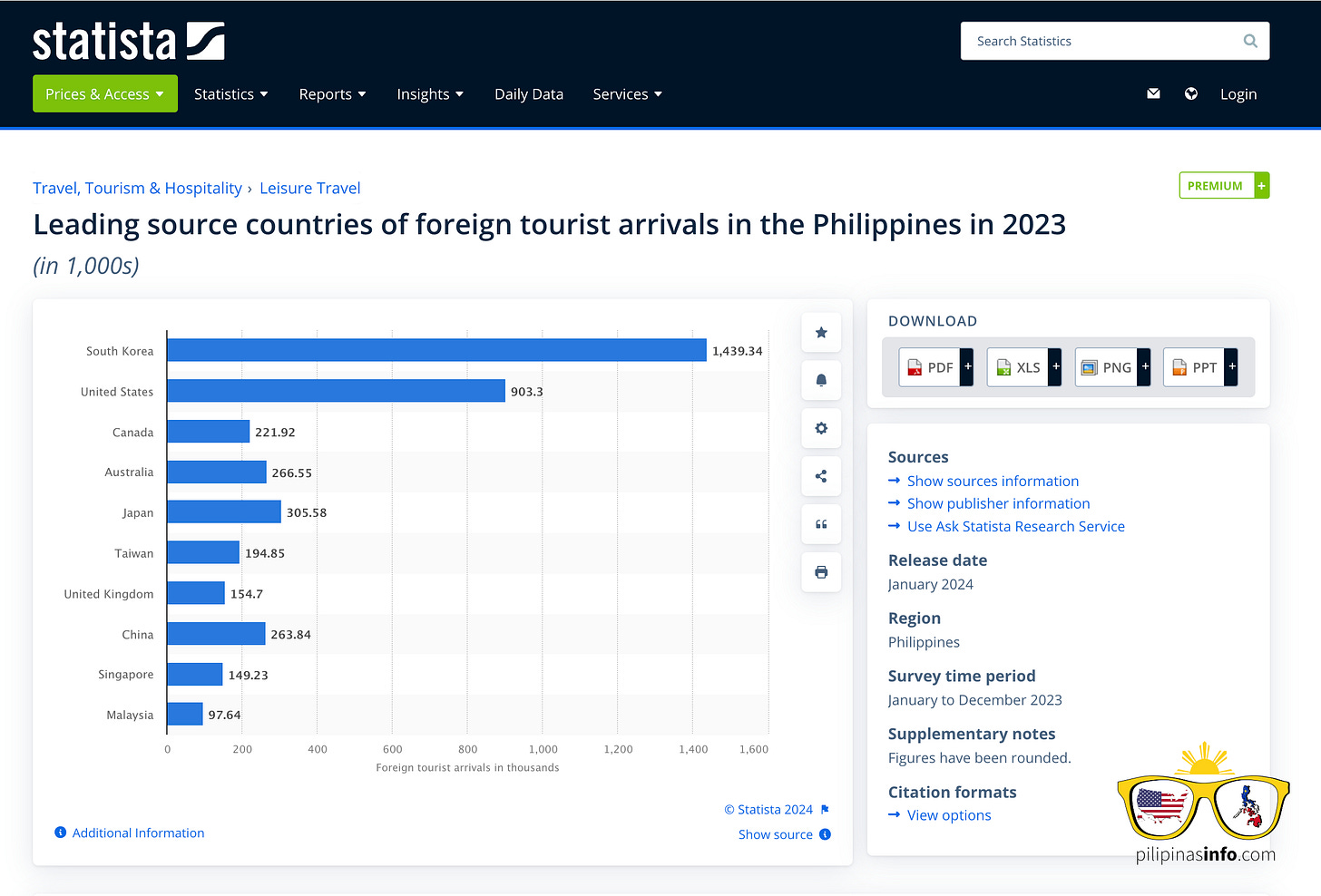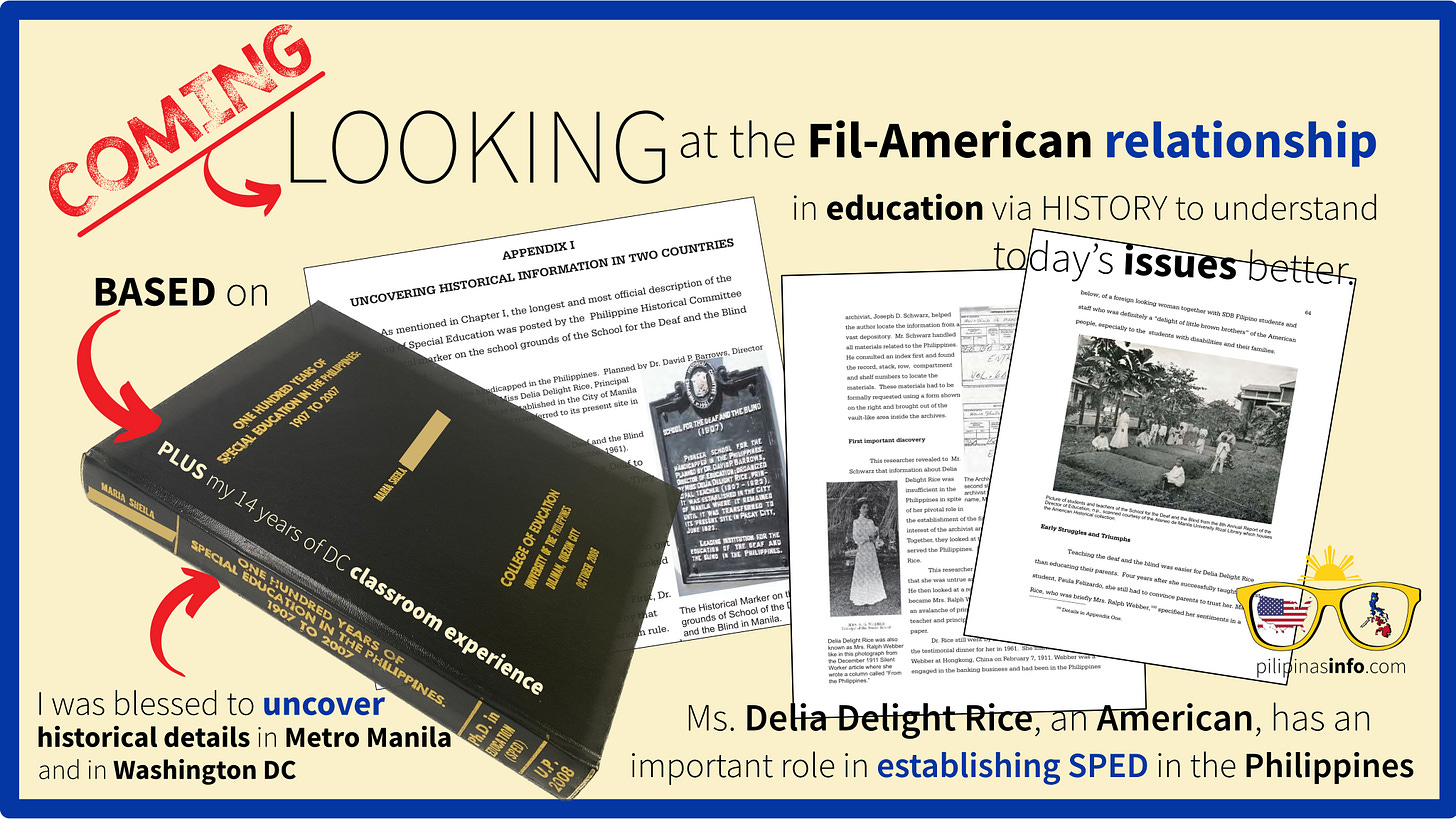From Philippine Travel Posts to Filipino-American Relationship in Education
Focus Change for Philippine Info starting Early 2025
Ever since I started this online newsletter, I explicitly announced that I am using a Filipino-American perspective. As I write more stories, the more I realize that the Philippine-American relationship is complex and has many aspects since the Americans colonized the Philippines in 1898. Two of those aspects are travel and education.
Philippine Travel
Many Americans love to travel to the Philippines. Statistica reported that, “Between February and December 2022, the United States was the biggest market of international tourists traveling to the Philippines...” In 2023, USA ranked second, with South Koreans, who are geographically nearer, ranking first as Statistica showed below.
Americans love to travel to the Philippines because the US Dollar can buy more in the Philippines. Moreover, language is not a barrier; majority of Filipinos can speak in English. It is my humble hope that my travel posts help foreign and local tourists and that everyone interested will see it. However, it is time to switch the focus of this online newsletter, limit (but continue) free posts and serve more paid subscribers.
Switch to Filipino-American Relationship in Education
Education week reported that the Philippines is the leading supplier of J1 Visa International teachers between 2015 and 2021. J1 is a temporary working visa where foreigners are allowed to stay in the USA for a few years then are required to go back to their country. Education week did not included H1B teachers like me.
H1B is a dual intention working visa. Unlike J1 visas, H1B holders can apply for green cards and stay in the USA. I was part of a group of Filipino teachers who taught and stayed in the DC Metro area since the early 2000s. Now, more Filipino teachers are being employed in different states especially after the acute teaching shortage brought about by the pandemic. Many people know about Filipinos teachers migrating to the USA. However, it was relatively unknown that many American teachers went to the Philippines before.
Reverse Teacher Migration during the early 1900s
Many American teachers traveled by ship to the Philippines in the early 1900s to help establish public education in the Philippines. One of them is Delia Delight Rice has an important role in the history of Special Education in the Philippines.
I was blessed to discover a lot of historical details, that were missing from the Philippine archive, in the DC area libraries. I never published it except as a bound dissertation copy that is in the University of the Philippines. It is time to share what I discovered about the Filipino-American relationship in education since the early 1900s while I was writing my dissertation. I will also share some insights like:
What I learned during a mass Reading Assessment in a QC HS before traveling to the USA for my first classroom assignment
Common first impressions of Filipino teachers and American students
Afterwards, I plan to “build-in-public” a new version of my History of SPED in the Philippines that focuses on the special relationship of Filipinos and Americans in education.
Invitation for Partners
Support Philippine-Info newsletter by subscribing. Consider being a Philippine Info Partner for only $120 per year and you will receive:
copy of the chapter about Delia Delight Rice in the History of SPED in the Philippines dissertation
Mass Reading Assessment report that I did for a Quezon City High School that revealed a common teaching mistake that can easily be corrected
Quarterly PDF copies of posts about Filipino-American relationship in education
free paperback copy of the History of SPED in the Philippines once it is published via Amazon’s KDP





